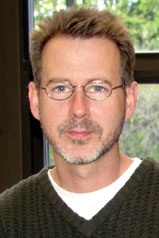 Our intent is to converse about John Goldingay’s newest OT theology volume (Old Testament Theology: Israel’s Life
Our intent is to converse about John Goldingay’s newest OT theology volume (Old Testament Theology: Israel’s Life
) biweekly or at least monthly. Goldingay is quotable, and I love this opening claim:
“In understanding what it means to be human, whereas the modern world starts with the autonomous individual, and the postmodern world (at least in theory) starts with the community, the premodern world could be reckoned to start with God” (16).
In fact, the order of the First Testament is God, community and only then the individual — without minimizing any of the three, Goldingay skillfully weaves a tapestry of these three dimensions of Israel’s life. This organic connection is mirrored in the holistic life of the people of God in the First Testament: ethics and theology, worship and society — all mesh into one life before God. The sacred vs. the secular, so happy to modernists is blown away by the First Testament.
And the Torah, or First Testament, is not so much law as it is instruction. And he sees this understanding in Jesus: Jesus “was not laying down laws but laying out a vision or providing illustrations or offering teaching. He was following the nature of the Torah, which was also not simply laying down laws but offering an exposition of theological ethics in the form of law” (41). [I’m wondering if the Law vs. Gospel hermeneutic is a fundamental misunderstanding of OT laws?]
I wonder if reading the OT as “law” has torn the Bible from the hands of the Church. How often does the “vision of Leviticus” inspire us — in spite of its concerns with things we no longer worry about (like food laws)?
He criticizes the attempt to find principles and rationales as hazardous. (We needed Goldingay’s contribution in the book we just finished about moving from Bible to theology.)

